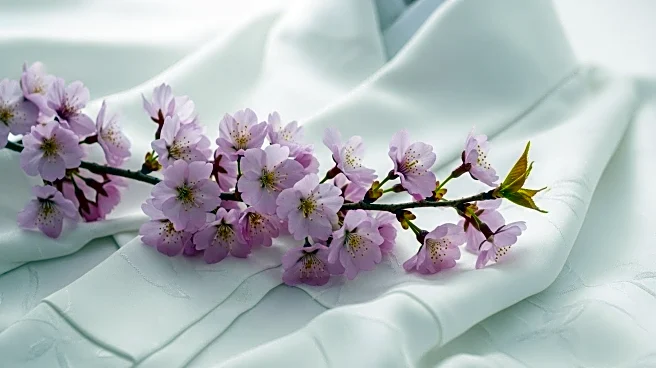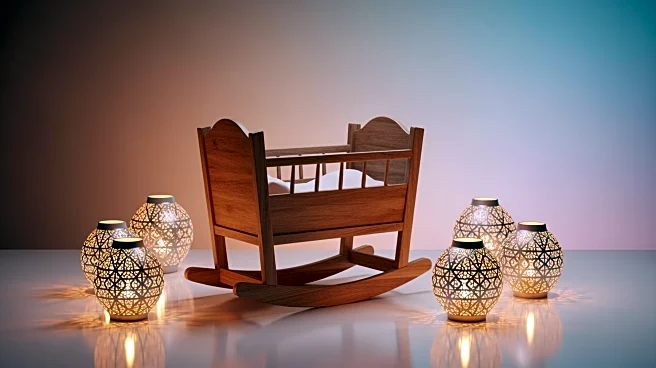What's Happening?
Prince Hisahito of Japan has become the first male royal to reach adulthood in 40 years, marking a significant milestone for the Japanese monarchy. Hisahito, who is second in line to the Chrysanthemum Throne, is likely to become emperor one day. However, concerns are mounting as he may be the last male successor due to Japan's male-only succession policy and dwindling numbers of male heirs. Hisahito, a university freshman studying biology, is known for his interest in dragonflies and has co-authored a paper on insect populations. His coming-of-age rituals were delayed by a year to accommodate his college entrance exams. The shortage of male successors is a pressing issue for the monarchy, reflecting Japan's aging and shrinking population.
Why It's Important?
The succession issue is critical for the future of Japan's monarchy, which has lasted for 1,500 years. The male-only succession policy is under scrutiny, with debates on whether to allow female succession or adopt male descendants from defunct royal families. The monarchy's survival is at stake, and the government has previously considered allowing female emperors. Hisahito's adulthood highlights the urgency of addressing succession concerns, as he carries the burden of the Imperial Family's fate. The debate impacts Japan's national identity and the monarchy's role as a symbol of unity.
What's Next?
The succession debate continues, with proposals to revise the Imperial House Law to allow royal status for husbands and children of princesses and permit female succession. The government faces pressure to resolve the crisis surrounding the monarchy's future. Hisahito's adulthood may prompt renewed discussions on succession policies, with potential changes to ensure the monarchy's continuity. The outcome of these debates could redefine the monarchy's structure and its role in Japanese society.
Beyond the Headlines
The succession issue raises ethical and cultural questions about gender roles and tradition in Japan. The male-only policy reflects conservative values, but changing demographics and public opinion may drive reforms. The monarchy's future could influence Japan's cultural identity and its approach to gender equality. The debate also highlights the challenges of preserving historical institutions in modern times.










